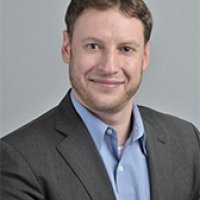Facebook Live: The Politics of Corruption in Russia and Ukraine
Protests in Russia’s Far East over the arrest of a popular governor have once more brought persistent official corruption into the national spotlight--even as Vladimir Putin takes a victory lap following his nationwide vote to support extension of his presidency to 2036. Meanwhile in Ukraine, where President Zelensky was elected on the promise of cleaning up corruption and has announced his intent to seek another term, public sentiment has turned negative as progress on reforms appears stymied by familiar political, economic, and social forces. Why is official corruption such a persistent challenge in these two very different systems? What impact has Western pressure and support had on reform efforts? Do sanctions targeting individuals for corrupt activities make a difference?
This conversation was the sixth in an occasional Kennan Institute series featuring discussions with leading experts and thinkers on Russia and Eurasia.
Follow us on Facebook and Twitter for the latest updates on our live events!
Selected Quotes
Jordan Gans-Morse
"While there's certainly still lower-level corruption and higher-level corruption, Putin is somewhat sincere in his fight against corruption […] If he could have a perfect world, it would be one in which he and the people around him get involved with as much corruption as they want […] At the same time, there's enough corruption by semi-powerful people like governors that he can use that against them when they need to, but everyone else does exactly what he wants all the time and it functions like a perfectly clean, European bureaucracy."
"I don’t see Putinism as some do as a pure kleptocracy. Part of it is for the logic you just raised in that if you’re going to rule over it, you obviously want to generate wealth, but it’s also that there’s real geopolitical goals here. In a pure kleptocracy, you would send your army over to Syria and find out you don’t have a real army, but they have a real army. That doesn’t happen in a real kleptocracy. There’s a lot of corruption, especially at the upper levels, but it has to be kept in check to a degree or they would not be able to do some of the geopolitical things they would want to do."
Matthew Rojansky
“You could argue is that the difference in Ukraine has always been that there isn’t a Navalny both because there are so many Navalnys and because there are no barriers to them simply entering politics and becoming Arseniy Yatsenyuk, which again, not to say that they’re the same, but as a guy who’s ostensibly young, energetic and democratic and gets ultimately discredited for not being effective when given the reins of power at rooting out corruption or doing almost anything else, though he himself predicted that when he called himself a Kamikaze.”
“Each cycle begins by intense frustration with among other things, always corruption, revolution, then super elevated expectations following the change, whatever that may be, or in revolution, Maidan, and we may be warming up to another one now, and then disappointment that it didn’t move fast enough, and then there might even be backsliding because of the indifference and cynicism, people have prepared literally for anybody but these people, and that anybody could literally be bad guys from before and it has been. This problem of cycles based exactly on what you were describing of kind of may be unreasonably high expectations or expectations for faster movement. Some people literally almost think there’s this magic to ‘If we could just join the European Union, then we would be Germany,’ and it just doesn’t work like that.”
Speakers


President and CEO, US Russia Foundation
Hosted By

Kennan Institute
After more than 50 years as a vital part of the Wilson Center legacy, the Kennan Institute has become an independent think tank. You can find the current website for the Kennan Institute at kennaninstitute.org. Please look for future announcements about partnership activities between the Wilson Center and the Kennan Institute at Wilson Center Press Room. The Wilson Center is proud of its historic connection to the Kennan Institute and looks forward to supporting its activities as an independent center of knowledge. The Kennan Institute is committed to improving American understanding of Russia, Ukraine, Central Asia, the South Caucasus, and the surrounding region through research and exchange. Read more
